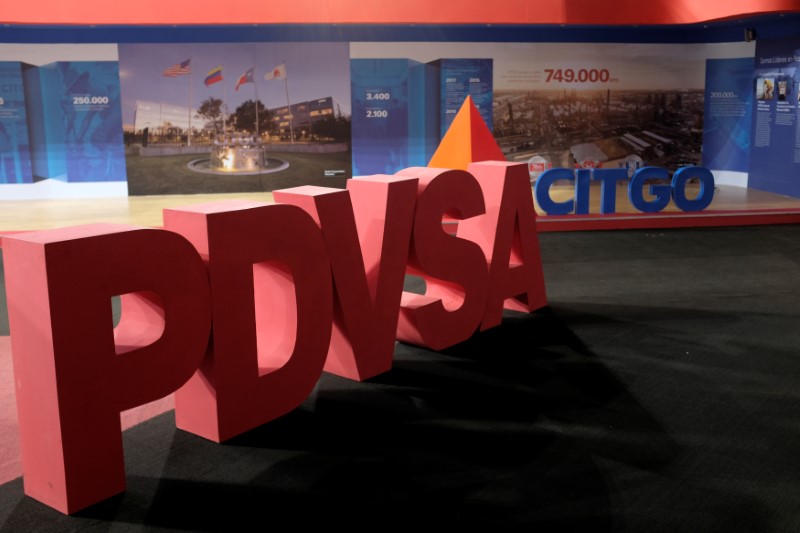By Marianna Parraga
(Reuters) - Venezuelan PDVSA's U.S. refining unit Citgo Petroleum is increasing its efforts to buy crude oil on the open market to compensate for declining supplies from its parent, which is dealing with a severe tanker backlog, traders said on Monday.
Citgo has a 273,000-barrels per day (bpd) contract to import Venezuelan Merey crude from PDVSA, but the parent company has not sent a single cargo of that grade in over a month, forcing its subsidiary to buy spot cargoes of diluted crude oil (DCO) from PDVSA's joint ventures, according to traders and Reuters data.
"They are mainly looking for Latin American heavy grades," said a trader who sold two spot crude cargoes to Citgo for June delivery.
In recent weeks, Citgo also has been buying Colombian and Ecuadorian heavy grades on the spot market, as well as Azeri Light from the Black Sea and Arab heavy and medium crudes, according to the data and traders.
Declining oil production, lawsuits by creditors, lack of spare parts for terminals and an executive braindrain have reduced PDVSA's ability to export oil, which is the OPEC-member country's main source of revenue.
From January through April, Citgo was the customer most affected by PDVSA's inability to fulfil its supply contracts, according to the Venezuelan company's internal data. PDVSA's oil output this year has fallen to 1.62 million bpd, its lowest level in 33 years.
The subsidiary has a "contingency plan" for diversifying imports if the Venezuelan supply declines further, according to a Citgo employee, who declined to be identified as the information was private. The plan has not yet been activated, the person added.
[For a graphic on PDVSA's noncompliance with its supply contracts, click on https://tmsnrt.rs/2JqWNoI]
U.S. ConocoPhillips' (N:COP) actions to seize PDVSA's assets in the Caribbean in an effort to cash a $2 billion arbitration award have extended the Venezuelan firm's export delays since May, leading to a tanker backlog representing nearly a month's worth of shipments from its main terminal.
As of June 11, PDVSA had 23 million barrels worth of crude to be shipped from Jose port and through new ship-to-ship (STS) transfers off its Paraguana Refining Center (CRP), according to Reuters vessel tracking and trade flows data.
Since early June, PDVSA has been notifying customers about its need to employ STS operations.
Graphic on PDVSA's noncompliance with oil supply contracts - https://tmsnrt.rs/2JqWNoI
ALTERNATIVES
Citgo was expecting to receive about 6 million barrels of Venezuelan Merey crude in June, one of the traders said. Instead, it imported a 516,000-barrel cargo of DCO that discharged last week and several other cargoes of the same grade have set sail to its refineries, according to the Reuters data.
The pressure for Venezuelan oil eased slightly in early June as Citgo's 157,500-bpd Corpus Christi refinery halted its fluid catalytic cracker (FCC) due to a fire.
But PDVSA's tanker backlog is far from being solved, according to the Reuters data and traders, forcing Citgo and other customers to look for alternative supplies.
Large tankers chartered by U.S. Valero Energy (N:VLO), Vitol [VITOLV.UL], India's Nayara Energy
The backlog this week decreased to 72 vessels from over 80 tankers last week, according to the Reuters data, as PDVSA focussed first on loading the largest vessels and rejected nominations for receiving new tankers in June until it finishes loading those already in line.

"Each STS operation is taking almost a week," said a shipping source. "Costs are higher, special vessels are needed and PDVSA operators have to be moved from other ports. It's a lot of work."